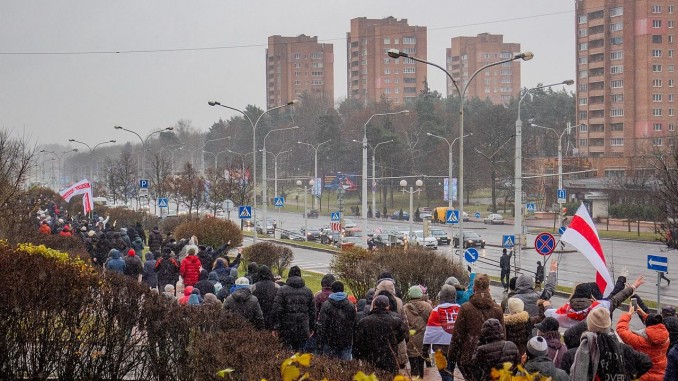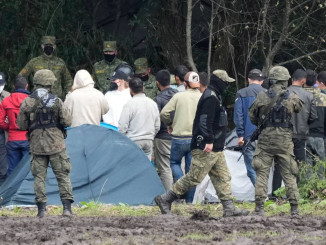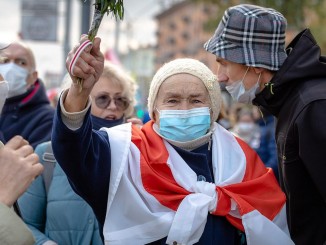
For more than 4 months the people of Belarus have stood up to their ruler of 26 years, Aleksandr Lukashenko, protesting every weekend, and sometimes more often, for his removal. Millions have defied repression, marching en masse in the capital and striking their jobs.
During this period, they have remained focused on their goal and been creative about putting pressure on the system. Women have taken a major role in the political leadership of the opposition, but also in putting their bodies on the line to defend fellow protesters. Most recently, to avoid mass arrests and violence, protesters have taken to smaller gatherings away from city centers, in areas harder for security forces to detect and repress. These protests, called Marches of Neighbors, have also been targeted, but not as effectively as larger gatherings. The creativity of the people has been on full display.
Although Lukashenko is still in power, and is getting support from other authoritarian leaders, there are signs that this uprising is wearing him down. One sign is the fact that he needed assistance from outside powers. Another is that the Ministry of Internal Affairs – his government’s primary institution for internal security – is having trouble maintaining loyalty in the ranks. Apparently, many officials may be losing faith in his ability to hold power, or are at least questioning whether they want to continue to repress their own people.
Or…they may be beginning to feel the power of the people of Belarus, and may be asking themselves what will happen to them if the people are capable of coming out on top.




